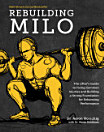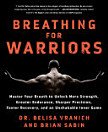Doping: A Sporting History
jun 2022 · Reaktion Books
eBook
320
Páginas
family_home
Apto
info
reportLas valoraciones y las reseñas no se verifican. Más información
Información sobre este eBook
A gripping, provocative history of doping in sports—packed with examples—that proposes a new emphasis for modern anti-doping efforts.
Why is doping a perennial problem for sports? Is this solely a contemporary phenomenon? And should doping always be regarded as cheating, or do today’s anti-doping measures go too far?
Drawing on case studies from the early twentieth century to the present day, Doping: A Sporting History explores why the current anti-doping system looks as it does, charting its origins to the founding of the modern Olympic Games. From interwar notions of sporting purity to the postwar stimulant crisis, what seemed an easily resolvable problem soon became an impossible challenge as the pharmacology improved, the policy system stuttered, and Cold War politics allowed doping to flourish. The late twentieth century saw the creation of the World Anti-Doping Agency, but has the intensity of these global measures led to unintended harms?
From the cyclist Tommy Simpson who died in 1967 on Mont Ventoux with amphetamines in his jersey to Team Russia’s expulsion from the 2018 Winter Olympics, Doping: A Sporting History is a gripping, provocative account that ultimately proposes a new approach: one for the inclusion and protection of athletes themselves.
Why is doping a perennial problem for sports? Is this solely a contemporary phenomenon? And should doping always be regarded as cheating, or do today’s anti-doping measures go too far?
Drawing on case studies from the early twentieth century to the present day, Doping: A Sporting History explores why the current anti-doping system looks as it does, charting its origins to the founding of the modern Olympic Games. From interwar notions of sporting purity to the postwar stimulant crisis, what seemed an easily resolvable problem soon became an impossible challenge as the pharmacology improved, the policy system stuttered, and Cold War politics allowed doping to flourish. The late twentieth century saw the creation of the World Anti-Doping Agency, but has the intensity of these global measures led to unintended harms?
From the cyclist Tommy Simpson who died in 1967 on Mont Ventoux with amphetamines in his jersey to Team Russia’s expulsion from the 2018 Winter Olympics, Doping: A Sporting History is a gripping, provocative account that ultimately proposes a new approach: one for the inclusion and protection of athletes themselves.
Acerca del autor
April Henning is a lecturer in sport studies at the University of Stirling. She is coauthor of Performance Cultures and Doped Bodies: Challenging Categories, Gender Norms, and Policy Responses. Paul Dimeo is associate professor in sport studies at the University of Stirling. His books include A History of Drug Use in Sport, 1876–1976 and The Anti-Doping Crisis in Sport.
Valorar este eBook
Danos tu opinión.
Información sobre cómo leer
Smartphones y tablets
Instala la aplicación Google Play Libros para Android y iPad/iPhone. Se sincroniza automáticamente con tu cuenta y te permite leer contenido online o sin conexión estés donde estés.
Ordenadores portátiles y de escritorio
Puedes usar el navegador web del ordenador para escuchar audiolibros que hayas comprado en Google Play.
eReaders y otros dispositivos
Para leer en dispositivos de tinta electrónica, como los lectores de libros electrónicos de Kobo, es necesario descargar un archivo y transferirlo al dispositivo. Sigue las instrucciones detalladas del Centro de Ayuda para transferir archivos a lectores de libros electrónicos compatibles.







